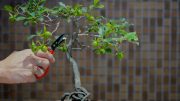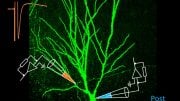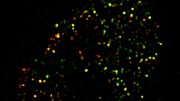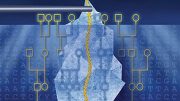
Science, historically a collaborative effort, is now witnessing increasing competition, leading some researchers to withhold findings from their peers. Recent studies highlight “victim sensitivity” as a predictor of knowledge hiding while identifying strongly as a “researcher” might inadvertently promote distrust.
Science is a collaborative effort. Our current knowledge stands as a testament to countless generations of scientists who have expanded upon the work of those before them.
Yet, in contemporary academia, the landscape is becoming fiercely competitive, often to the detriment of individual researchers. This is particularly challenging for early-career professionals who are striving to establish their reputation and achieve tenure. Today’s scholars often find themselves in a race for citations, accolades, and funding.
So, understandably, many scientists have grown unwilling to cooperate and help their peers by sharing their work. They would “hide” their raw data, despite having taken years-long efforts to collect. They would also conceal experiments that have failed or proved insignificant. All these practices would then result in different teams wasting precious time in running the same useless studies, rather than making further progress and contributing to the world’s knowledge.
In the meantime, recent years have witnessed a growing global push for open science: a movement standing for and celebrating an extensive set of good practices founded on transparency, collaboration, and sharing.
This is why a German team of social psychologists from the LMU Munich and the University of Marburg ran a series of studies with scientists from across Europe and North America, in order to find what is driving researchers to withhold knowledge from their colleagues. Their results were recently published in the open-access peer-reviewed scholarly journal Social Psychological Bulletin.

Researchers in the laboratory. Credit: Rhoda Baer / National Cancer Institute
“Knowledge hiding is problematic, not only for the private economy but also in academia. One might say that knowledge hiding in the scientific domain is even more problematic because science should be all about acquiring, scrutinizing, and disseminating knowledge,” explain the authors of the study.
“If scientists were inclined to hide what they know from their peers, then accumulating scientific knowledge would be impossible and instead of maximizing the collective effort of discovering the truth, science would merely produce unconnected, insular, and probably non-replicable single effects.”
According to their findings, a specific personality trait called “victim sensitivity” predicted knowledge hiding in science. Researchers with this personality trait are characterized by a latent fear of being exploited by others and, thus, are more suspicious about their colleagues.
The research team also tested whether reminding the participants about their identity as a “researcher” might help or hinder collaboration. Their motivation to observe the impact of this approach is linked to prior studies, which showed that people are inclined to favor those belonging to their own group.
Surprisingly, though, when participants in one of the studies got their sense of identity as “researchers” activated, they actually became more suspicious and ready to hide their knowledge. One explanation for this would be that being reminded of being a “researcher” activated an obstructive self-stereotype: a researcher is a highly ambitious person, but is cold, rather than caring and cooperative.
The good news, point out the authors of the study, is that – among the participants – the intention to hide knowledge was rather low.
However, the authors warn about a potential bias. It is likely that researchers who volunteered to take part in these studies were more cooperative to begin with. Additionally, it might be that in the context of self-reporting, the participants tried to present themselves as more likeable.
“We may need to change the stereotypical way we think about ourselves as researchers, in order to build trust and create a sharing environment among scientists,” concludes the research team.
“Identifying as a researcher should include being cooperative, other-oriented, and trustworthy: a social identity that stands for knowledge sharing – not knowledge hiding.”
Reference: “Among Us: Fear of Exploitation, Suspiciousness, and Social Identity Predict Knowledge Hiding Among Researchers” by Marlene Sophie Altenmüller, Marlene Sophie Altenmüller and Mario Gollwitzer, 15 May 2023, Social Psychological Bulletin.
DOI: 10.32872/spb.10011









That makes a lot of sense; from my reading of black holes and their associated phenomena, I’m struck with the thought that, no one can be that stupid, and after reading this article it’s rather obvious that they aren’t; they’re just hiding what they know.